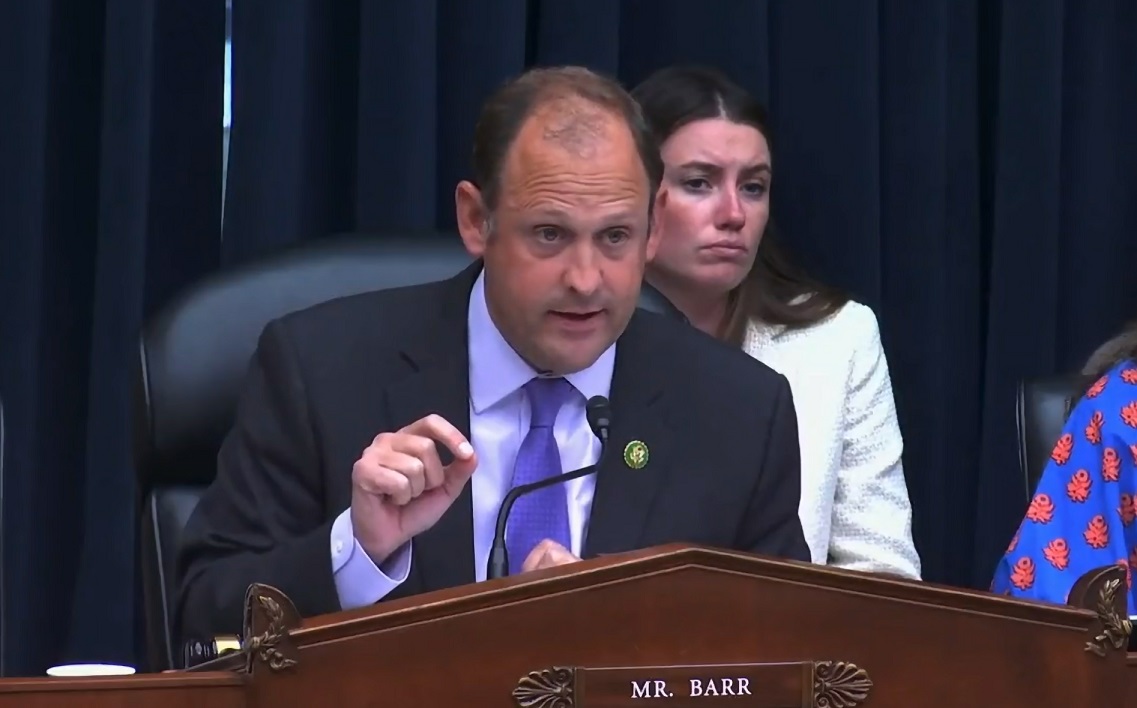Republicans Launch New Attack on ESG Investing
Republicans in the U.S. House of Representatives announced the introduction of new proposed legislation aimed at restricting ESG investing in retirement funds.
The new bill, the “the Ensuring Sound Guidance (ESG) Act,” introduced by Republican Congressmen Andy Barr and Rick Allen, aims to revive several aspects of rules brought in by the Trump administration aimed at blocking the use of the consideration of ESG factors in ERISA plans by retirement plan fiduciaries.
The Trump-era rule was effectively reversed by the Biden Administration Department of Labor’s “Prudence and Loyalty in Selecting Plan Investments and Exercising Shareholder Rights” rule in December 2022, which allowed fund managers for ERISA plans to include ESG considerations in the investment process, and also allowed climate and ESG factors to be considered by fiduciaries when exercising shareholder rights, such as in proxy voting, but required that considerations “must be based on factors that the fiduciary reasonably determines are relevant to a risk and return analysis,” such as the economic effects of climate change or other ESG factors on an investment.
Republicans subsequently overturned the DOL rule in Congress, with Barr sponsoring the resolution to block the rule in the House, leading President Biden to issue his first presidential veto in March 2023 to defend the rule.
In a statement announcing the launch of the new bill, Allen said:
“Retirement plan sponsors have a duty to invest their clients’ hard-earned money in a manner that maximizes returns and minimizes risk. Yet, President Biden’s DOL is desperately clinging to its flawed rule that would allow financial advisors to invest Americans’ retirement savings in climate-related ESG funds, which are proven to carry higher risk and charge steeper fees.”
The new bill introduces several rules aimed at blocking the use if ESG considerations, including a requirement for ERISA plan fiduciaries to base decisions only on “pecuniary” or financial risk and return, factors, over non-pecuniary factors such as environmental or social considerations, and to only use non-pecuniary factors when choosing between alternative investments that are other wise equal, but requiring significant documentation in that case on why pecuniary factors weren’t sufficient for the choice, and the impact of the selection on the portfolio, among other factors.
For investment advisors, the bill would allow the consideration of non-pecuniary factors such as ESG considerations only with written consent from the investor, and would then require disclosure by the advisor regarding the expected financial impact of the investment – but only for time horizon of up to three years – followed by an analysis comparing the performance of the selected investments to an alternative index or basket of securities, including the fees incurred to consider the non-pecuniary factors.
The bill also would require government studies, including an examination of the “potential impact” of state and local pension plans’ use of ESG considerations to “subordinate the pecuniary interest of participants and beneficiaries.”
In his statement, referring to ESG as “the cancer within our capital markets,” Barr said:
“Asset managers should be in the business of maximizing returns for investors, not pushing their own political agenda at the expense of everyday Americans. Our proposed legislation safeguards the savings efforts of hardworking Americans. This critical legislation not only guarantees that advisers make prudent investment choices based on financial factors, but also empowers savers to decide how their money is invested, contrary to the Department of Labor’s (DOL) finalized rule.”





